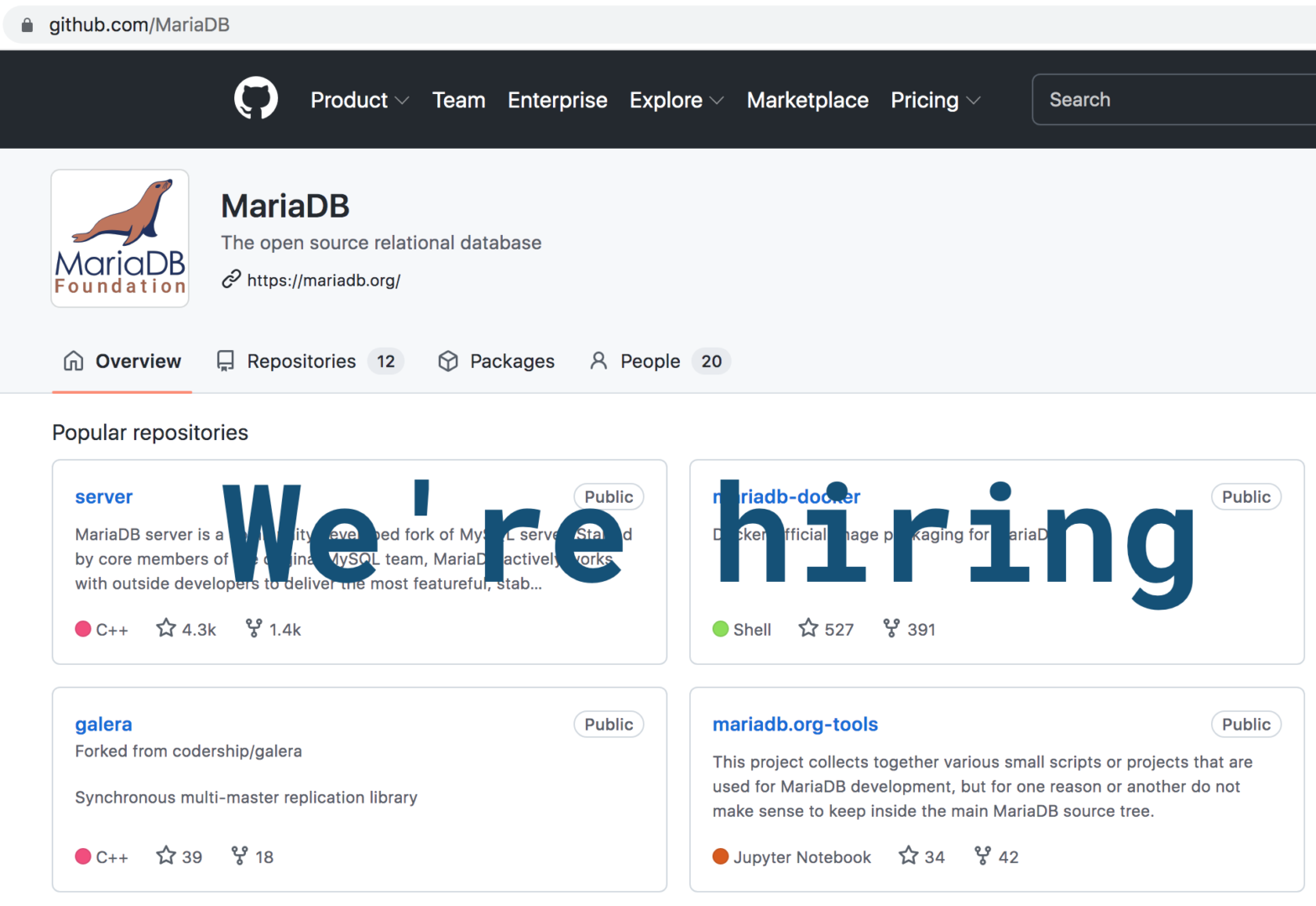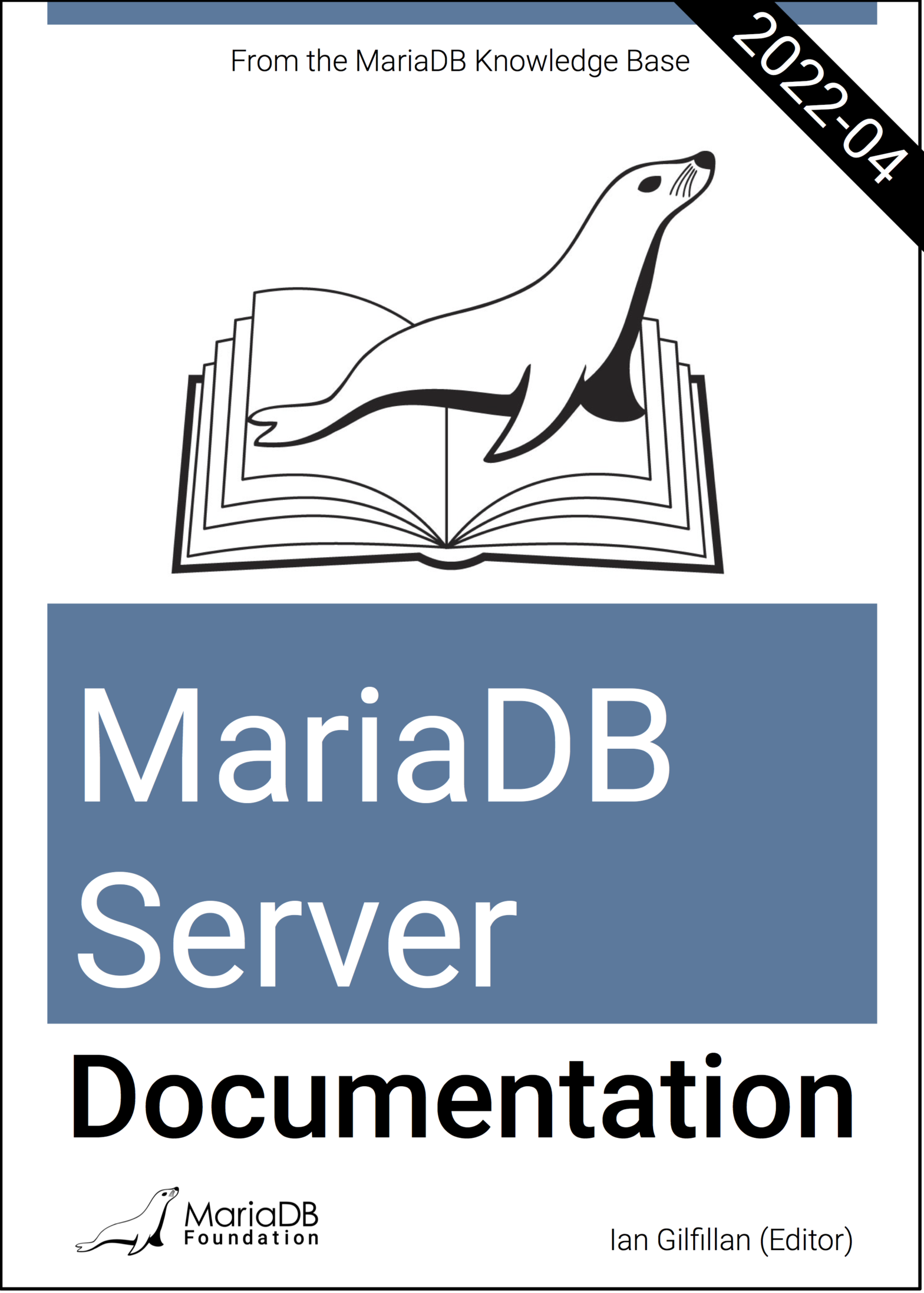Category Archives: Development
Would you like to contribute to the MariaDB Server code base, its feature set, its quality? Here’s what you can do to help – in other words, here’s our Contribution Wish List
Scratching your own itch
The assumption around code contributions is usually that the code contributor extends the product in a direction that corresponds to the contributor’s own needs, which in turn are close to the needs of other users. “Scratching your own itch” is the phrase commonly used.
Some itches are more for the common good
That said, we have also been approached by potential providers of contributions that would take a more general approach.
…
In the previous blog we have seen how to create a statefulset MariaDB application. Also, we learned how replication works in MariaDB in this blog. Now, we will try to create a replicated statefulset application. As good references for creating this blog, I would like to give credit to the Kubernetes documentation as well as an example from Alibaba Cloud.
Configure replication
To replicate a MariaDB application we are going to create a statefulset that will consist of a single init container and one application container.
…
Continue reading “MariaDB & K8s: How to replicate MariaDB in K8s”
The MariaDB Foundation relies on public mirrors to distribute binaries and packages to the world. An overview of the full list can be seen at https://mirmon.mariadb.org. If you would like to volunteer to become a mirror, take a look at https://mariadb.com/kb/en/mirror-sites-for-mariadb/.
Our download page already automatically suggests one of those mirrors for you to download our binaries. Same goes for the repository configuration tool; see https://mariadb.org/download.
The purpose of this blog post is to present you a new system that we have been testing since December 2021 and that we believe is now ready for public adoption.
…
Yes, we are hiring!
And we are hiring for quite an interesting position: As a senior developer of MariaDB Server, with merging community code contributions as a main task.
A demanding job
This is a very demanding job. The MariaDB Server code base is large and complex, and being a good C / C++ developer is only the starting point for being able to contribute to it. You also need to understand databases, and the existing codebase architecture.
A demanding code base
The existing codebase is demanding. Depending on how you look at it, it’s either very efficient (if you know it well), or it has many dependencies (if you don’t).
…
Continue reading “We’re hiring: Senior MariaDB Developer / Code Reviewers”
In this blog we are going to demonstrate how to replicate a MariaDB database that runs in a Docker container (let’s call it primary) to one or more MariaDB servers that run in a Docker container (let’s call them replicas) using binary logging, a method that creates binary log files and an index that contains the record of all changes to the database (both data and structure). You can find an overview of how replication works here and you can find how to setup replication here. An example can be found in this GitHub script.
…
Please join MariaDB Foundation in giving a bit of financial recognition to Olivier Bertrand, the developer behind the CONNECT Storage Engine! We will match your contribution up to a total of 5.000 €, on top of the 5.000 € that we have already allocated 5000 € for Olivier Bertrand’s Lifetime MariaDB Contribution Award.
What is CONNECT?
Olivier Bertrand is an unsung hero. He is the original contributor and still the main developer behind the CONNECT Storage Engine, which – much as its descriptive name indicates – enables MariaDB Server users to connect to a variety of databases other than MariaDB Server itself.
…
Continue reading “Celebrating Olivier Bertrand of the CONNECT Engine”
MariaDB Server Documentation is now released as a single PDF file, browsable offline. Download the over 3000 pages and check it out!
Better late than never
Some things take long! In 2014, there was a request on Jira for delivering the MariaDB Server Knowledgebase in one PDF file. That’s over seven years ago. MDEV-6881, you see it in the number already – we are now at well beyond MDEV-28000.
The request has always been in the back of our heads. What triggered it now was playing around with Python and the relative ease of transforming one format to another, including PDF.
…
In the previous blog we created a stateless application, deployed with K8s resource Deployment, which allows one to replicate the application, but where data is lost when Pods are restarted, meaning there were no data consistency. In the same blog we used PersistentVolumeClaim for dynamic provisioning of PersistentVolume, but we used Deployment, meant for stateless application, and this way is *not recommended* for statefulset application where each replica should have its own persistent volume. The proper way to achieve that is through the Statefulset resource and this post we will cover that.
In K8s one can create a stateful application, an application like a database, which needs to save data to persistent disk storage for use by the server/clients/other applications, to keep track of its state and to be able to replicate and be used in distributed systems.
…
Continue reading “Create statefulset MariaDB application in K8s”



